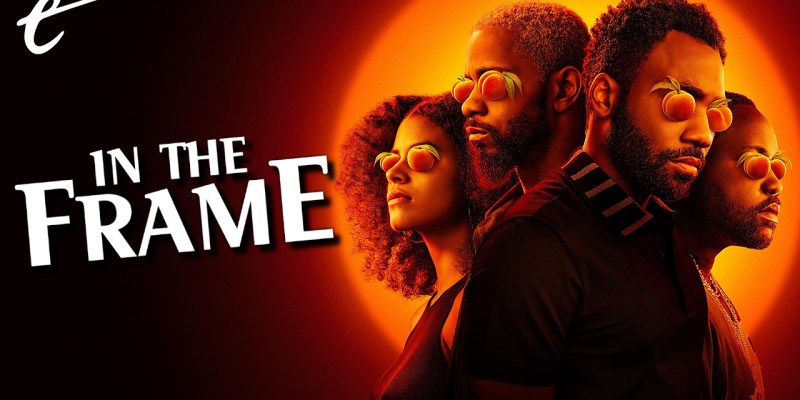This article contains light spoilers for the whole series of Atlanta in its discussion of its liminal spaces.
Atlanta wrapped up its final season early this month.
The template of the show was that of a sitcom. It was built around four central characters. Earnest “Earn” Marks (Donald Glover) was a smart and cynical operator, who served as manager to local rapper Alfred “Paper Boi” Miles (Brian Tyree Henry). They hung out with their mutual friend, a free-thinking radical named Darius (Lakeith Stanfield). The cast was rounded out with Vanessa “Van” Kiefer (Zazie Beetz), the mother of Earn’s daughter, Lottie (Mia Atehortua, Austin Elle Fisher).
However, it quickly became clear that Atlanta was not a typical television sitcom. This was very much by design, according to Glover, who created the show in addition to headlining it. “I just Trojan Horsed it,” he would later admit to reporters. “I told FX the show was something it wasn’t until we got there and then hoped it would be enjoyable.” A set of guidelines provided to the writers insisted that it “should do anything and everything that a live action show can get away with.”
Atlanta embraced a heightened sensibility, inviting its characters and the audience to question their reality. In its first season, “B.A.N.” aired a half-hour block of programming from the fictional Black American Network, including advertisements. Its final season included “The Goof Who Sat by the Door,” a documentary offering a fictionalized production history of The Goofy Movie, which has been reclaimed in recent years as “a black millennial classic.”
Over four seasons and 41 episodes, Atlanta garnered attention for its experimentation and postmodernism. Watching Atlanta on a week-to-week basis was a thrilling experience. It was impossible to know what the show was going to do. Maybe the show would transform into a horror film, as it did in “Teddy Perkins.” Maybe it would focus on a set of completely new characters dealing with a situation that had no relationship to the larger show.
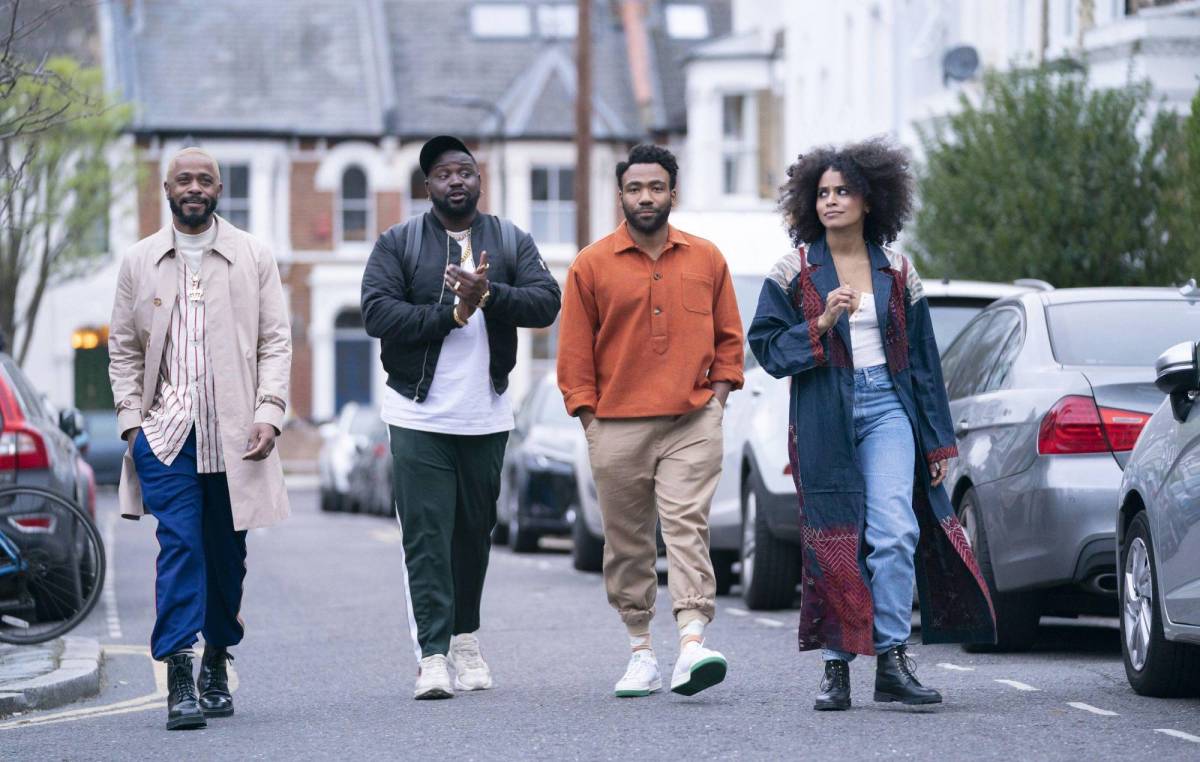
Donald Glover’s brother Stephen, who worked as writer and executive producer on the show, acknowledged that some of these choices generated pushback from FX, the network airing the show. The third season premiere, “Three Slaps,” featured only a single brief appearance from Earn, the show’s protagonist, in its final moments. Stephen noted that FX was anxious about that choice, “for good reason.” However, it fits with Donald’s vision of Atlanta as “Twin Peaks with rappers.”
Atlanta could be challenging. It was certainly divisive, even among its fans. Reactions to its big swings were often polarized. Vulture initially put the show’s third season on its list of the best television of 2022, only to remove it after the season had finished. Inkoo Kang complained that the show had become “weird for the sake of being weird,” while Ellen E. Jones insisted as the final season loomed that the series was “sure to live on with us for ever.”
Atlanta has a dreamlike quality to it, one that often veers into paranoia. The leads are often in altered states. Darius believes that he is living inside a simulation. In the show’s finale, “It Was All a Dream,” Darius wonders whether he is trapped inside a sensory deprivation tank. In “New Jazz,” Alfred takes drugs in Amsterdam, having strange encounters with Liam Neeson (himself) and a woman (Ava Grey) who may be a vision of his dead mother.
This applies even to conventional episodes built on familiar sitcom templates. The second episode, “Streets on Lock,” offers a grimly surreal take on the classic sitcom “hospital” episode, with Earn locked in police custody and confronted with a variety of strange and uncomfortable sights. “Barbershop” follows Alfred as he attempts to get a haircut, becoming embroiled in a series of increasingly absurd events with his barber Bibby (Robert Powell III).
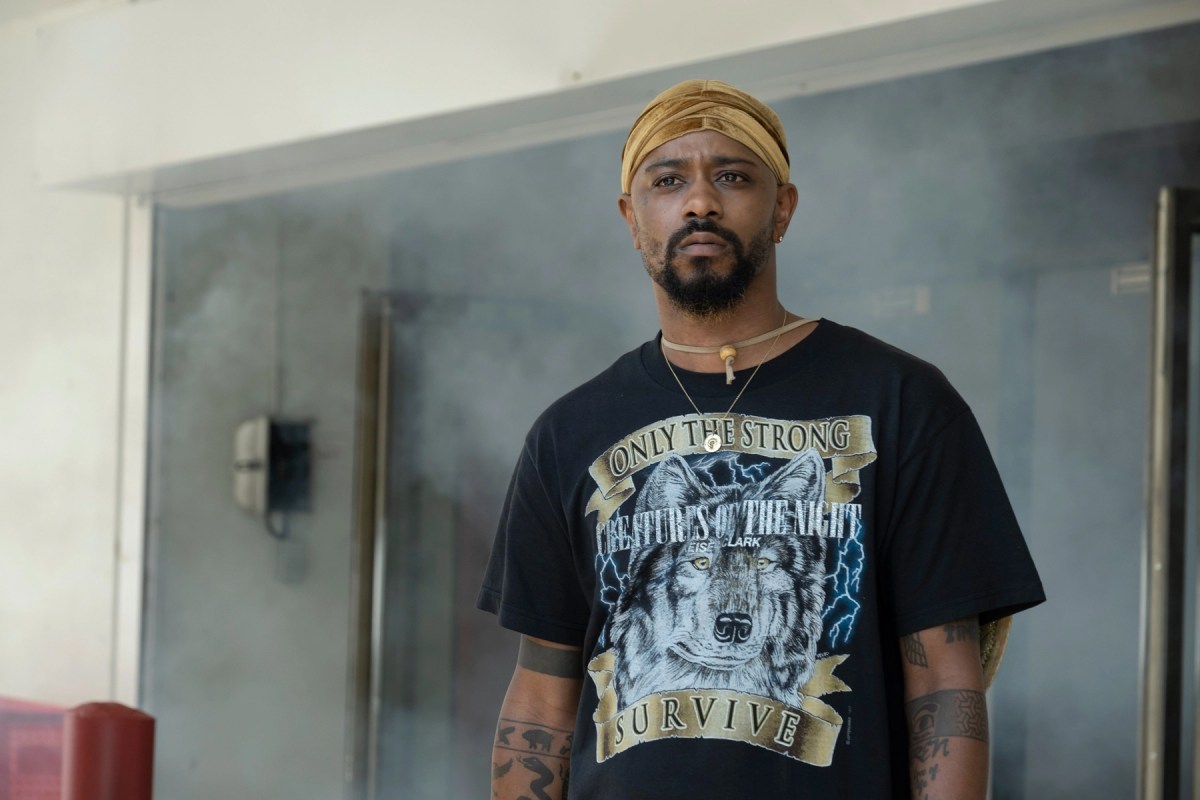
Atlanta is perhaps best understood as part of a recent wave of what has been termed “Afro-Surrealism,” a movement that includes a wide variety of media that explores the African American experience through the lens of heightened reality. Atlanta was contemporary with films like Jordan Peele’s Get Out and Boots Riley’s Sorry to Bother You, along with the work of musicians like Kendrick Lamar, Flying Lotus, Kamasi Washington, and Beyoncé. There’s a deliberate unreality to these works.
Atlanta stands apart from these works because of its nature as a television show. Donald Glover compared Atlanta to The Sopranos, boasting that the show’s final two seasons would be among the best television ever made and that David Chase’s iconic television show was the “only (one) who can touch us.” The Sopranos also had a similar absurdist streak to it, relying heavily on dream imagery, unsolved mysteries, and lingering ambiguity.
Pressed on the comparison, Glover explained that The Sopranos resonated with him as a younger viewer for its ability “to make something scary but real.” This explains a lot about Atlanta and the way in which the show uses its surrealism to speak to its characters. Atlanta is one of the great liminal spaces in television, the rare series where nothing is ever truly anchored and grounded, where anything can change, and the rules of reality can shift.
Atlanta is often built around disorienting structures, with characters frequently lost and overwhelmed. In “The Club,” Earn chases a promoter (Lucius Baston) through a byzantine nightclub to collect money owed to Alfred, the promoter literally slipping through walls. In “The Most Atlanta,” Earn and Van are trapped in a purgatorial shopping mall, encountering their exes. In “The Old Man and the Tree,” a billionaire’s (Daniel Fathers) apartment is nested inside a terrace house.
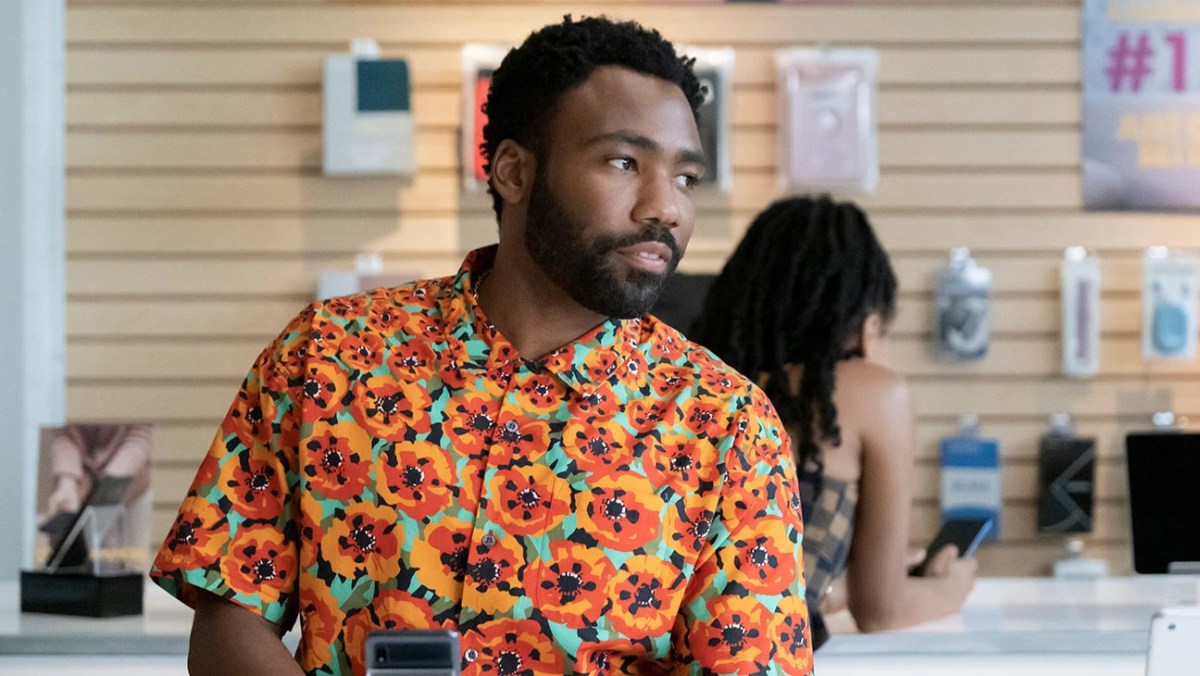
These confusing spaces are often tied to notions of celebrity and capitalism, reinforcing the show’s preoccupation with what Darren Franich described as “the postmodern commodification of the self.” Characters often find themselves trapped in nightmarish parties. Van and her friends wait for Drake to arrive at a party in “Champagne Papi,” but he never does. After winning a round of poker, Alfred spends “The Old Man and the Tree” trying to get his money from the inaccessible host.
This emphasis on liminal spaces is tied to the show’s exploration of race and identity. Atlanta has been read as “a sardonic exploration of Black commercial success as oppression,” and it often appears that success for people like Earn and Alfred is a lot less secure than it is for white artists. “Teddy Perkins” is a horror story about the title character (also Glover), a successful and insane musician very obviously modeled on Michael Jackson.
Atlanta insists that these boundaries of race are often arbitrary and surreal. In the opening scene of “Three Slaps,” a white fisherman named Earnest (Tobias Segal) recounts the true story of Lake Lanier in Georgia, the African American community flooded by the government. Earnest suggests that the town was destroyed not because it was Black but because it was “almost white.” He explains, “White’s not a real thing. There’s no scientific basis for it.” Whenever white characters in Atlanta become aware of race, it’s a source of alarm.
Throughout the third season, white characters are confronted with that liminality of identity. “Trini 2 De Bone” focuses on a white family where the young son (Indy Sullivan Groudis) has adopted the Trinidadian culture of his nanny. “Rich Wigga, Poor Wigga” is an episode shot in black and white that focuses on a mixed race teenager named Aaron (Tyriq Withers) who is deemed too white to qualify for a college scholarship.
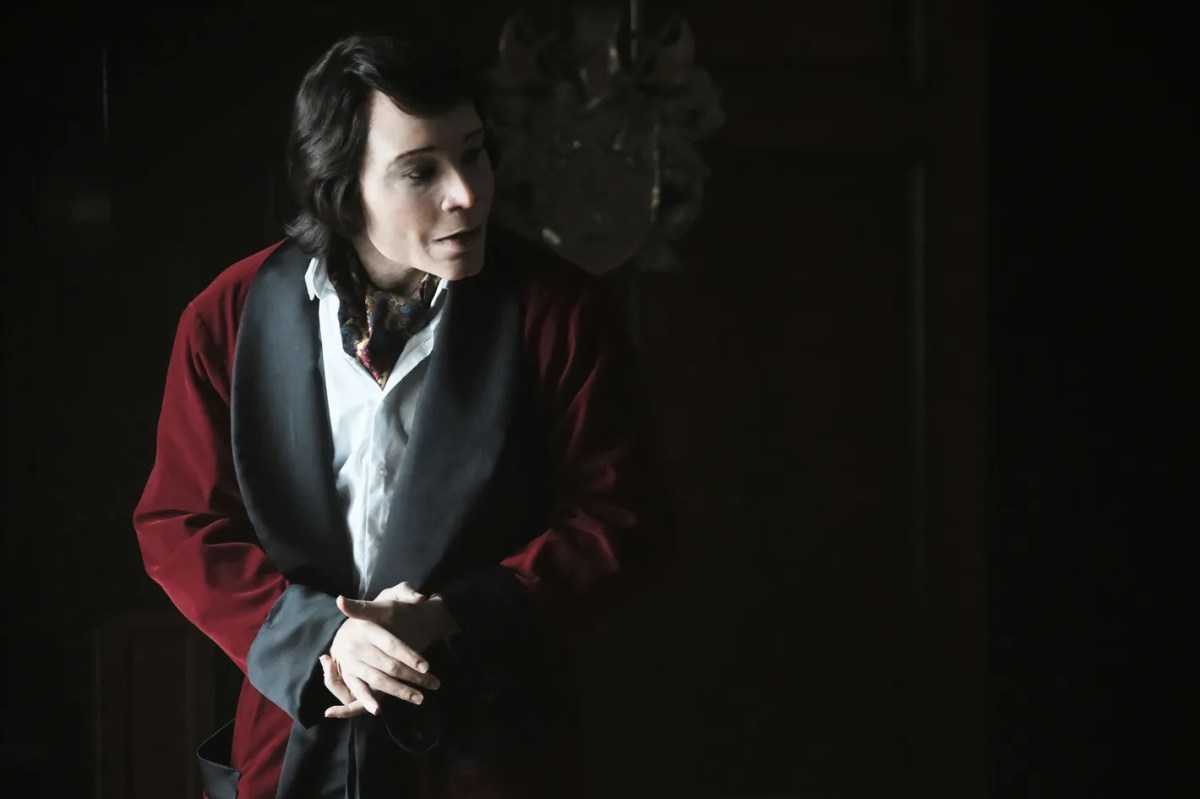
The lead characters in Atlanta always seem to be stuck “between” spaces, with no firm or stable framework around them. In the first season, Earn is constantly living hand to mouth. In “Go for Broke,” he has to report his debit card as stolen in order to cancel the charge for a meal with Van. In the first season finale, “The Jacket,” it is revealed that Earn is homeless and living out of a storage locker, even as he continues to hustle for Alfred.
Alfred finds himself struggling with his relationship to fame. In the early seasons, he struggles to sell himself as a rapper. The only time that the audience actually gets to see Alfred as a successful rapper is during the third season, as he tours around Europe with no fixed abode. In the fourth season, particularly episodes like “Born 2 Die” and “Andrew Wyeth. Alfred’s World.,” Alfred struggles with life after fame, realizing that his commercial success was a transitory and fleeting thing.
Van also struggles with these sorts of questions. Both Earn and Van are uncertain about the nature of their relationship to one another, beyond the tie that they share to Lottie. In the third season, Van loses herself in Europe, drifting into and out of the lives of the other characters. She reappears as a completely new person in that season’s finale, “Tarrare.” She’s speaking in a French accent, smuggling severed human hands for cannibal diners, and having an affair with actor Alexander Skarsgård (himself).
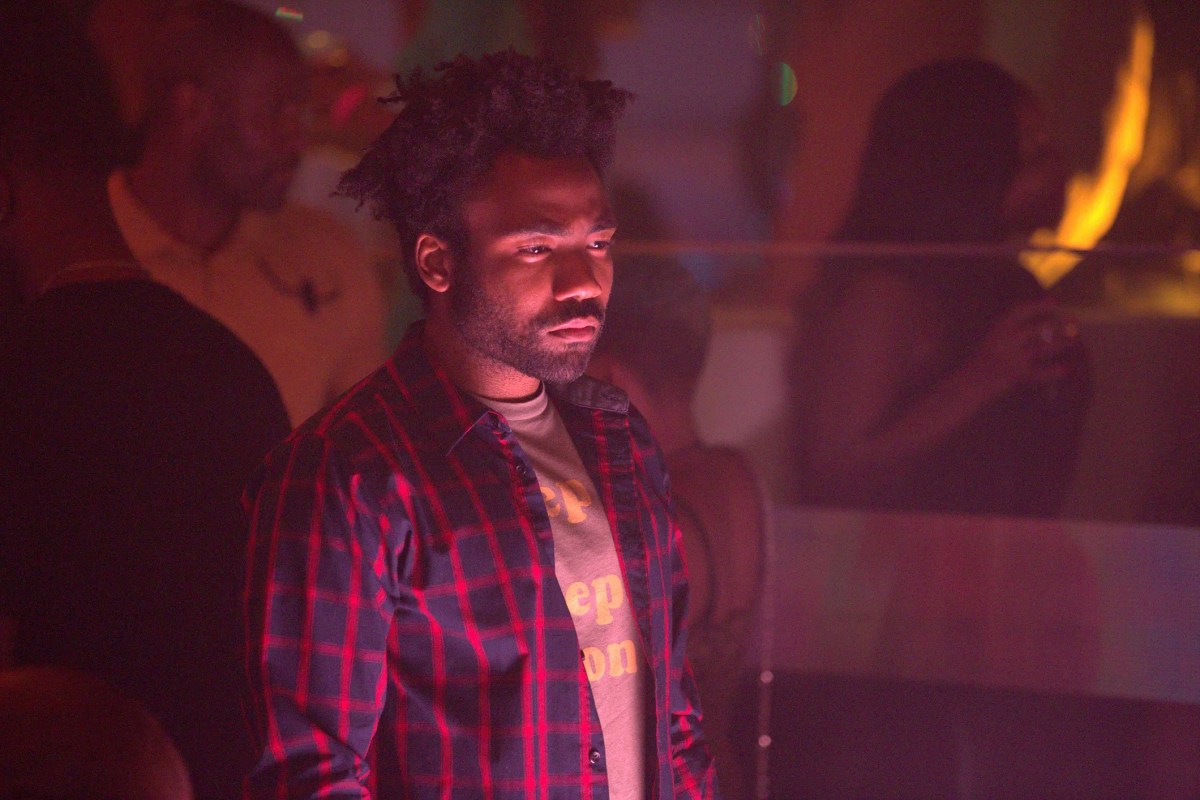
Towards the end of the episode, Van has a breakdown, explaining this break from reality. “I don’t even know who I am,” she confesses to her friend Candice (Adriyan Rae). “You know who you are. Earn knows who he is. Lottie knows who she is. But who the fuck am I? I don’t even know.” Candice reassures her, “You’re somebody.” It feels like a microcosm of the show, with Van articulating the transitory nature of these characters’ existences, where nothing feels real or tangible.
This is the subversive brilliance of Atlanta. Though the show ostensibly adopts the structure of a conventional sitcom with four leads and recognizable arcs and plots, it rejects the idea of a fixed status quo. The traditional sitcom is built around stability and structure, a familiar template and consistent character archetypes. Characters on shows like Friends or Fraser will always be the center of their narratives, working the same jobs and living in the same apartments.
Atlanta offers a Millennial twist on the archetypal 1990s sitcom. The show has no center. Characters live in hotels and nightclubs. They are occasionally entirely absent from episodes. The show’s third season takes place almost entirely outside of the eponymous city. Atlanta finds a way to bend the classic sitcom format to reflect a generation well removed from the security of that format. This is a generation with none of the financial, professional, or personal security of their predecessors.
In some ways, Atlanta’s suffusion of unreality into the sitcom model offers its own deeper reality.
